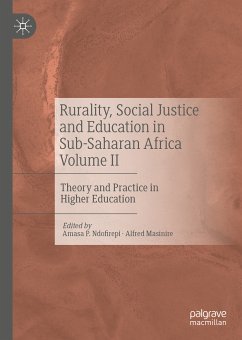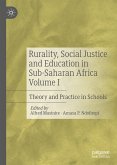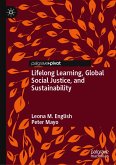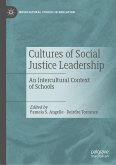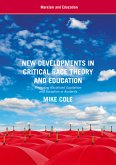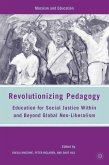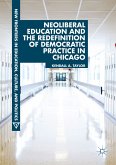This book explores rurality and education in sub-Saharan Africa through a lens of social justice. The second volume of a two-volume project, this book explores possibilities and constraints of rural social justice in diverse educational contexts, with particular emphasis on higher education. Drawing on contexts from across sub-Saharan Africa, this volume examines such topics as student-teacher preparation, post-colonialism and access and participation. In doing so, these volumes reflect the need to shift conceptions of rurality from colonial and conservative stereotypes to an appreciation of rurality as locations in space and time. Focusing on inclusivity and intersectionality, these books raise important questions into rurality and social justice, and champion openness for education in rural communities who may be excluded.
Amasa P. Ndofirepi is Associate Professor at the School of Education, Sol Plaatje University, South Africa. His research focuses on social justice and epistemologies in African higher education, critical thinking, African philosophy of education and Philosophy for Children.
Alfred Masinire is Senior Lecturer and Researcher in Education at the University of the Witwatersrand, South Africa. His research focuses on rural education, as well as gender and teacher development in rural schools. At the core of his work, he maintains a strong commitment to rurality and social justice.
Dieser Download kann aus rechtlichen Gründen nur mit Rechnungsadresse in A, B, BG, CY, CZ, D, DK, EW, E, FIN, F, GR, HR, H, IRL, I, LT, L, LR, M, NL, PL, P, R, S, SLO, SK ausgeliefert werden.

